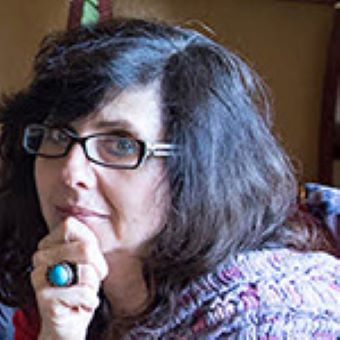By Joanna Beata Michlic
 When I began researching the history of those who rescued Jews in wartime Poland, I quickly realized that this is not a closed chapter: that this history has had a deep impact, for a long time after the end of the Holocaust, on the lives of individuals and families of both rescuers and survivors.
When I began researching the history of those who rescued Jews in wartime Poland, I quickly realized that this is not a closed chapter: that this history has had a deep impact, for a long time after the end of the Holocaust, on the lives of individuals and families of both rescuers and survivors.
My work on rescuers also aims to debunk some skewed popular myths pertaining to the memory of the Holocaust that crystallized in the early postwar period such as the theme of the "ignoble ungrateful Jew." My research shows that the myth of ungrateful Jew was rooted in prejudice rather than in reality. The early postwar letters of Jewish survivors reveal that in some cases, ironically the best form of gratitude for wartime deeds was for the Jewish survivors to pretend to cut off contact with the rescuers in the early postwar period so these Poles would not be exposed to their neighbors’ disapproval of their wartime rescue activities, expressed in robbery and violence.
I belong to a generation of scholars, who have a free access to major archives in post-communist Poland and therefore can analyze previously inaccessible primary sources including personal testimonies and letters of Polish rescuers and Jewish survivors that throw a new light on the nature of rescue. My role, as I see it, is to revisit, reevaluate and reinterpret the history of Polish rescuers and the relationship between rescuers and their Jewish charges written during the communist period (1945-89). During that period, the subject was a highly emotional and politicized topic presented in a biased and superficial manner in both the historiography and public memory. Many aspects of the relationship between rescuers and Jewish survivors during and after the Holocaust eluded close treatment by historians, as had a detailed typology of rescuers and the analysis of the status of rescuers and attitudes and behavior towards them within their own communities.
My research on this topic first started while working on a book on Jewish child survivors. I studied personal accounts of child survivors and rescuers from the early and late post-war periods and official records. There is no doubt that to write a comprehensive and nuanced history of the rescue of Jews in Poland today one has to approach the subject anew. I argue that studies of rescue should steer away from analyzing the topic from one point of view. They require a solid empirical, theoretical, and comparative approach that would result in placing it in the broader historical context of rescue in the entire Nazi-occupied Europe — that should lead to the demystification of it in and for Polish history. It is important for scholars to develop analytical tools and new intellectual approaches that would allow them to write a history of rescue in which all types of rescuers will be discussed from multiple perspectives.
In my work I insist that the history of rescuers who were dedicated to saving their Jewish charges without any intention of benefiting from their actions, has to be retold because of the ongoing manipulation of these rescuers by right-wing
Conservative politicians, historians, clergy, and pundits in post-communist Poland. In rewriting their history, one not only has to examine the socio-economic background, gender, and religiosity of these rescuers, but also investigate the more subjective factors such as family practices, the individual system of beliefs, emotions, and parental and sexual desires of married, widowed and single male and female rescuers.
In my own research I focus on the "dedicated rescuers" who went above and beyond their sense of duty to save Jewish life, and the ways they were perceived and treated by the local environment. I am particularly interested in the stigmatization of dedicated rescuers within their local environment. I argue that during the war and in the immediate postwar period, "dedicated" rescuers feared of being insulted and robbed, but this fear cannot be understood without cultural underpinning. People who robbed and ransacked rescuers’ properties did not do so solely for economic reasons, though they may have stolen in the belief that rescuers had acquired Jewish wealth. Economic reasons and benefits were important, but the rationale and motivation was to stigmatize, ridicule, and punish rescuers for saving Jews.
The pre-1939 ethno-nationalistic intention in labeling an individual a "Jewish saviour" was to make him or her stand out from the collective for betraying Polish social and cultural norms. Prewar symbolic stigmatization of Poles who spoke out against anti-Semitism, in the form of verbal abuse, took on much more violent and aggressive forms under German occupation with its genocidal policies against Jews and punitive measures against rescuers of Jewish fugitives. Verbal violence easily turned into brutal deeds against dedicated rescuers. And this situation continued in the early postwar period, when Jewish survivors began to come out of their shelters and leave their rescuers.
Dr. Joanna Beata Michlic is the Director of the HBI Project on Families, Children, and the Holocaust. She is currently a Senior Fulbright Scholar at the Strochlitz Institute for Holocaust Research and the Weiss-Livnat International M.A. in Holocaust Studies, University of Haifa. She is a member of the department of Historical Studies, Bristol University. She is the co-editor of "Bringing the Dark Past to Light: The Reception of the Holocaust in Postcommunist Europe."